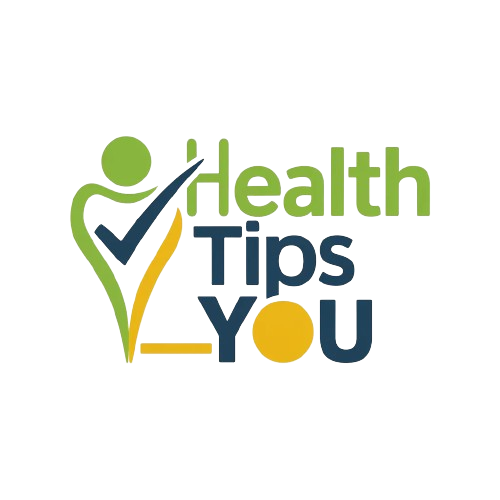The Clean Eating Guide: Top Picks for Fueling Your Body with Healthful Foods

Healthy foods are those that provide essential nutrients to the body, promoting overall well-being and maintaining optimal health. They are typically whole, minimally processed foods that are rich in vitamins, minerals, and antioxidants. Choosing healthy foods can have a positive impact on energy levels, mood, and physical health.
The Clean Eating Guide: Top Picks for Fueling Your Body with Healthful Foods is a comprehensive resource for those looking to improve their diet and make better food choices. It offers a curated list of nutritious foods that can help fuel the body and promote better health. The guide provides detailed information on the benefits of each food item, making it easier for readers to incorporate them into their daily meals.
One of the unique features of The Clean Eating Guide is its focus on whole, unprocessed foods that are naturally rich in nutrients. By emphasizing the importance of choosing foods in their most natural state, the guide helps readers make better food choices that can have a lasting impact on their health. Additionally, the guide includes tips on how to prepare and cook these foods to get the most nutritional benefit.
In the upcoming sections of the article, we will delve deeper into the specific foods recommended in The Clean Eating Guide, highlighting their individual benefits and how they can contribute to a healthy diet. We will also explore the importance of incorporating a variety of foods from different food groups to ensure a balanced and nutritious diet. Stay tuned for more valuable insights on fueling your body with healthful foods.
- Focus on whole, natural foods such as fruits, vegetables, whole grains, and lean proteins to fuel your body with essential nutrients.
- Avoid processed foods high in added sugars, unhealthy fats, and artificial ingredients, which can lead to various health issues.
- Incorporate a wide variety of colorful fruits and vegetables to ensure a diverse intake of vitamins, minerals, and antioxidants.
- Choose lean protein sources like poultry, fish, beans, and nuts to support muscle growth and repair.
- Opt for whole grains like quinoa, brown rice, and oats over refined grains for sustained energy and better digestion.
- Stay hydrated by drinking plenty of water throughout the day and limit sugary beverages that can contribute to excess calorie intake.
- Listen to your body’s hunger and fullness cues, and eat mindfully to avoid overeating and promote a healthy relationship with food.
- Experiment with herbs, spices, and healthy fats like olive oil and avocado to add flavor and nutritional value to your meals.
- Remember that balance is key – allow yourself occasional treats in moderation while primarily focusing on nourishing your body with whole, healthful foods.
- Consult with a registered dietitian or nutritionist for personalized guidance on incorporating clean eating into your lifestyle and meeting your specific health goals.
What is Healthy Foods?
When it comes to clean eating, it’s important to focus on incorporating healthy foods into your diet. Healthy foods are those that provide essential nutrients and vitamins without added sugars, unhealthy fats, or artificial ingredients. These foods are typically whole, minimally processed, and rich in nutrients that fuel your body and promote overall well-being.
In the realm of clean eating, terms like organic, non-GMO, and whole foods are often used to describe healthy options. Organic foods are grown without synthetic pesticides or fertilizers, non-GMO foods are free from genetic modification, and whole foods are unprocessed or minimally processed items that retain their natural nutrients. These labels can help you make informed choices when selecting foods for a healthful diet.
Understanding what constitutes healthy foods is essential for making informed choices about your diet. By focusing on whole, minimally processed options that are rich in nutrients and free from artificial additives, you can fuel your body with the essential substances it needs to function optimally. Incorporating a variety of fruits, vegetables, whole grains, lean proteins, and healthy fats into your diet can help support your overall health and well-being. By prioritizing nutrient-dense foods and avoiding those that are highly processed or contain added sugars and unhealthy fats, you can create a diet that promotes vitality and longevity.
Fruits
Apples, bananas, and oranges are all popular choices when it comes to incorporating more fruits into your diet. These fruits are not only delicious but also packed with vitamins and minerals that are essential for good health. Adding a variety of fruits to your meals can help ensure you are getting a wide range of nutrients to fuel your body.
Vegetables
Broccoli, spinach, and carrots are just a few examples of nutrient-dense vegetables that can help support your overall health. Incorporating a variety of vegetables into your meals can provide you with a range of vitamins, minerals, and antioxidants. Whether you choose to eat them raw, cooked, or blended into a smoothie, vegetables are an important part of any healthy diet.
Proteins
Chicken, fish, and tofu are excellent sources of protein that can help support muscle growth and repair. Whether you prefer animal-based or plant-based protein sources, it’s important to include protein in your meals to help keep you feeling full and satisfied. Experimenting with different protein sources can help you find options that you enjoy and that fit into your dietary preferences.
Whole Grains
Quinoa, brown rice, and whole wheat pasta are all examples of whole grains that can be incorporated into your meals to provide you with sustained energy. Whole grains are rich in fiber, vitamins, and minerals that can help support good digestion and overall health. Swapping out refined grains for whole grains can help you feel more satisfied and energized throughout the day.
What is clean eating?
Clean eating is a lifestyle choice that prioritizes consuming whole, unprocessed foods that are nutrient-dense and free from additives, preservatives, and artificial ingredients. It involves choosing fruits, vegetables, lean proteins, whole grains, and healthy fats to nourish your body and provide it with the essential nutrients it needs to thrive.
How can clean eating benefit my body?
Clean eating can benefit your body in numerous ways. By consuming whole, nutrient-dense foods, you are providing your body with the essential vitamins, minerals, and antioxidants it needs to function properly. This can help improve your overall health, boost your immune system, increase your energy levels, and promote weight loss. Additionally, clean eating can support gut health, reduce inflammation, and lower the risk of chronic diseases such as heart disease, diabetes, and certain types of cancer.
What are some top picks for clean eating foods?
Some top picks for clean eating foods include fruits such as berries, apples, and citrus fruits; vegetables like leafy greens, broccoli, and bell peppers; lean proteins such as chicken, turkey, and tofu; whole grains like quinoa, brown rice, and oats; and healthy fats such as avocado, nuts, and olive oil. It’s important to focus on a variety of foods from each food group to ensure you are getting a wide range of nutrients.
How can I incorporate clean eating into my daily routine?
To incorporate clean eating into your daily routine, start by meal planning and prepping to ensure you have healthy options readily available. Fill your plate with plenty of fruits and vegetables, incorporate lean proteins and whole grains into your meals, and opt for healthy fats in moderation. Avoid highly processed foods, sugary drinks, and excessive amounts of salt and saturated fats. Remember to stay hydrated by drinking plenty of water throughout the day.
Can clean eating help with weight loss?
Yes, clean eating can help with weight loss. By choosing whole, nutrient-dense foods over processed, calorie-dense foods, you can better control your calorie intake, improve your metabolism, and support your body’s natural detoxification processes. Additionally, clean eating can help reduce cravings for unhealthy foods, stabilize blood sugar levels, and promote a feeling of fullness, all of which can aid in weight loss and weight management.
Are there any downsides to clean eating?
While clean eating can have many benefits for your overall health, it’s important to be aware of potential downsides. Some people may find it challenging to maintain a strict clean eating diet, which can lead to feelings of deprivation and guilt if they “cheat” or indulge in less healthy foods. Additionally, focusing too much on clean eating can create an unhealthy obsession with food and lead to disordered eating patterns. It’s important to strive for balance, flexibility, and moderation in your approach to clean eating.
How can I make clean eating more affordable?
To make clean eating more affordable, shop for seasonal produce, buy in bulk when possible, and look for sales and discounts on whole foods. Consider purchasing frozen fruits and vegetables, which can be just as nutritious as fresh and are often more budget-friendly. Plan your meals in advance to minimize food waste, and consider growing your own fruits, vegetables, and herbs if you have the space to do so. Remember that investing in your health through clean eating can save you money in the long run by reducing healthcare costs associated with preventable diseases.
Is clean eating suitable for everyone?
Clean eating can be a healthy choice for many people, but it may not be suitable for everyone. Individuals with certain medical conditions or dietary restrictions may need to modify their clean eating approach to meet their specific needs. Pregnant or breastfeeding women, children, athletes, and individuals with allergies or sensitivities may require additional considerations when following a clean eating diet. It’s important to consult with a healthcare provider or registered dietitian before making significant changes to your diet, especially if you have specific health concerns, dietary restrictions, or medical conditions.
Can clean eating help improve my skin and hair?
Clean eating can have a positive impact on your skin and hair. By consuming a diet rich in fruits, vegetables, healthy fats, and lean proteins, you are providing your body with the nutrients it needs to support healthy skin and hair growth. Antioxidants found in colorful fruits and vegetables can help protect your skin from damage caused by free radicals, while healthy fats like omega-3 fatty acids can help maintain skin hydration and elasticity. Additionally, staying hydrated by drinking plenty of water can promote a healthy complexion and improve the overall condition of your skin and hair.
How can I stay motivated to stick to a clean eating lifestyle?
Staying motivated to stick to a clean eating lifestyle can be challenging, especially when faced with temptations or obstacles. To stay motivated, set realistic goals for yourself, celebrate your successes, and practice self-compassion if you veer off track. Surround yourself with a supportive community of friends, family, or like-minded individuals who can encourage and motivate you on your clean eating journey. Remember that clean eating is a long-term commitment to your health and well-being, so focus on progress, not perfection, and take each day as an opportunity to nourish your body with healthful, clean foods.
Final Thoughts
In conclusion, it is essential to prioritize what is healthy foods when fueling your body. The Clean Eating Guide provided valuable insights into choosing healthful foods that are packed with nutrients and beneficial for overall well-being. From lean proteins like chicken and fish to nutrient-dense vegetables and fruits, incorporating a variety of wholesome foods into your diet is key.
By focusing on whole, unprocessed foods and avoiding added sugars and artificial ingredients, you can optimize your health and energy levels. The guide also emphasized the importance of staying hydrated with water and herbal teas, as well as incorporating sources of healthy fats like avocado and nuts.
Overall, the key takeaway from The Clean Eating Guide is to be mindful of what is healthy foods you are putting into your body and make choices that nourish and support your health goals. By making small, sustainable changes to your diet and focusing on whole, nutrient-rich foods, you can fuel your body with the nutrients it needs to thrive.


![Seasonal Fruit Desserts [Guide]](https://healthtipsyou.com/wp-content/uploads/2024/04/Seasonal_Fruit_Desserts__Guide__2024_04_19_07_21_03_141215_00_00-768x439.jpeg)



